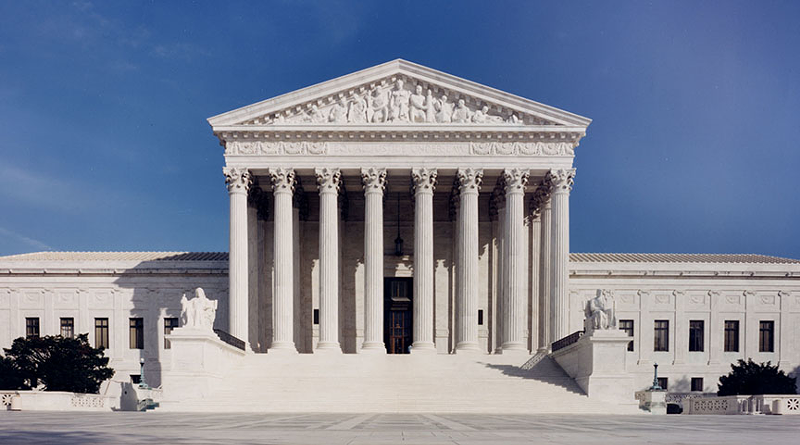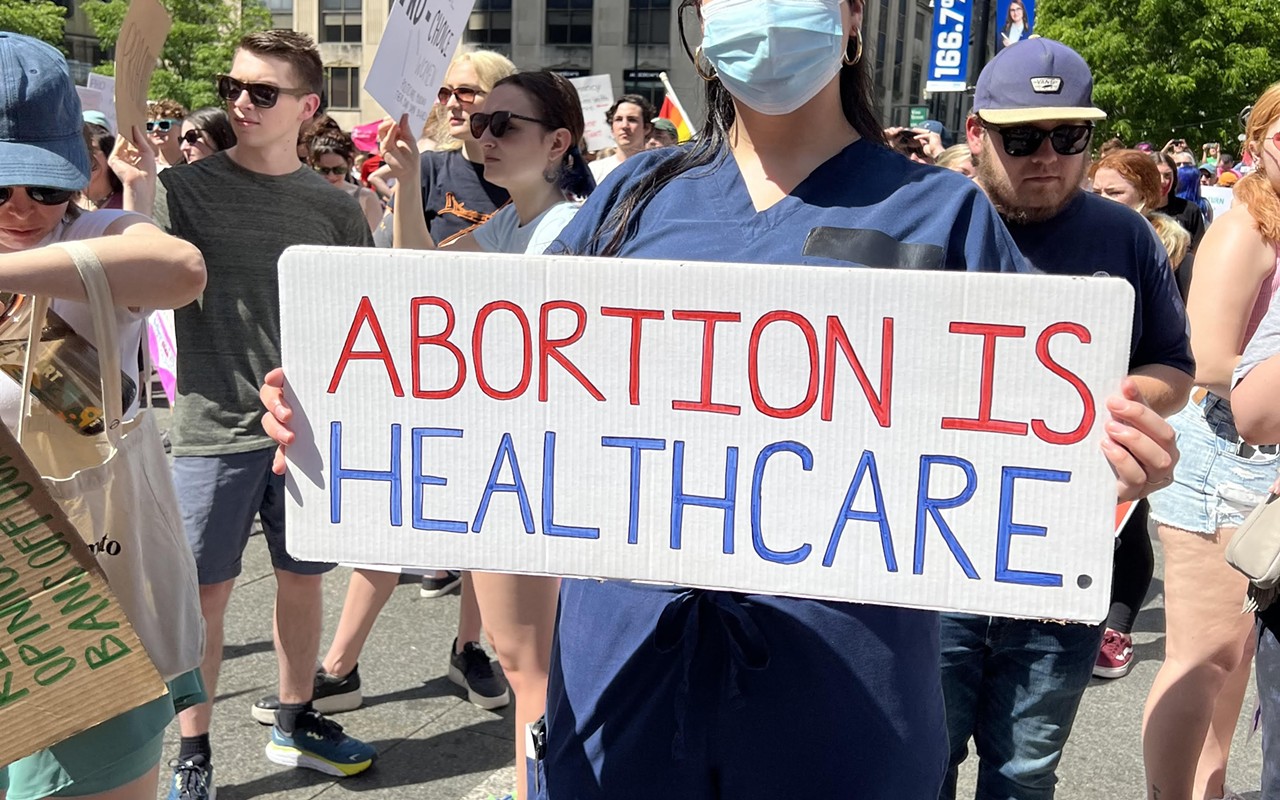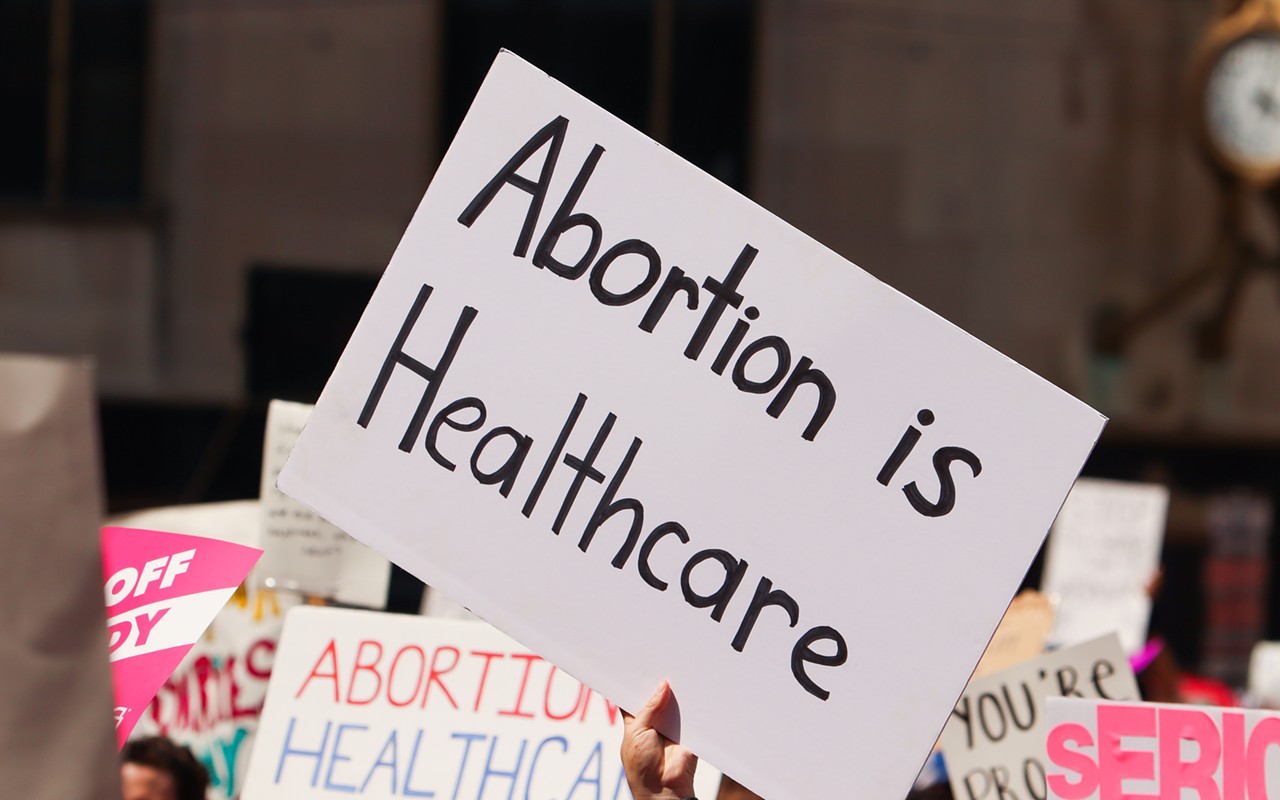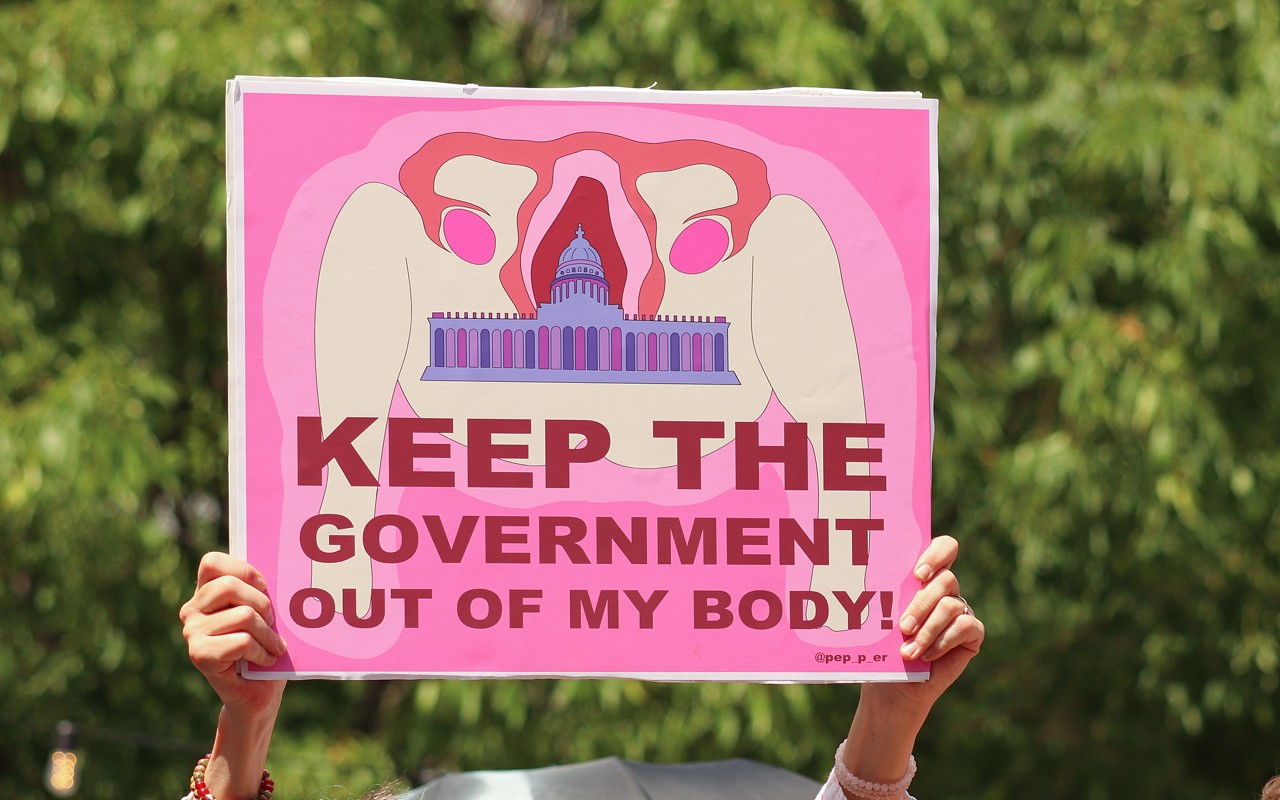Editor's Note: The U.S. Supreme Court voted to overturn Roe v. Wade on June 24, reversing 50 years of safe abortion care access for Americans. Supreme Court Justice Clarence Thomas argued in his concurring opinion that the Supreme Court “should reconsider” its past rulings that codify rights to same-sex relationships, same-sex marriage, and contraception access.
Jen Dye, the director for the Nathaniel R. Jones Center for Race, Gender, and Social Justice at the University of Cincinnati College of Law, says overturning Roe v. Wade could open a door to many other forms of oppression.
“Roe was actually decided on this whole idea of the right to privacy, and even though on its face it was about abortion, really the court decided that the issue was about the right to privacy,” Dye says. “It’s kind of like if somebody shouted, ‘Fire!’ in a crowded building, the issue would be freedom of speech, but on its face it’s if somebody can shout, ‘Fire!’ in a crowded building.”
The right to privacy is an unenumerated right, Dye explains, which means it’s not explicitly stated in the U.S. Constitution.
“It’s well-established in a lot of case law and precedent that it is something we can imply and infer that we all have, even if it’s not explicitly stated,” she says.
In Justice Samuel Alito’s leaked draft opinion which suggests the court is ready to overturn Roe v. Wade, Alito cites other rights Americans have enjoyed that are also unenumerated rights:
- The right to obtain contraceptives (Griswold v. Connecticut, 1965)
- The right to interracial marriage (Loving v. Virginia, 1967)
- The right to engage in private, consensual sexual acts (Lawrence v. Texas, 2003)
- The right to same-sex marriage (Obergefell v. Hodges, 2015)
“There’s an erosion there,” Dye says. “Alito in his draft opinion clearly lays out the groundwork to overturn anything that isn’t explicitly stated in the Constitution.”
“The Constitution makes no reference to abortion, and no such right is implicitly protected by any constitutional provision,” Alito writes in his draft opinion. He clarifies that the other unenumerated rights are different from abortion rights because they do not involve the moral question of life, but he also says rights that are not explicitly stated in the Constitution must be “deeply rooted in the nation’s history and traditions.”
Dye points out the other unenumerated rights are very new in the nation’s history and apply to citizen that the country's founders never even considered.
“I mean, the Constitution was written in the late 1700’s,” she said. “At that time period it was white men who owned property who counted. They were the only people who could vote, they were the ones who were considered citizens, if you were a person of color, you weren’t even considered human – you were property. Women, while you were considered human, you were still someone’s property. If we say we want to go back to what the Constitution was written as, that’s what the Constitution was written as."
Ohio has already started passing laws that signal homophobic and transphobic priorities. The recently passed House Bill 151 bans trans youth from participating in school sports, requiring controversial gender-verification exams on children. The legislature approved the bill 56-28. Same-sex marriage was only passed in 2015, and Ohio Republicans have since proposed their own “Don’t Say Gay” legislation. Approval of interracial marriage also is far from "deeply-rooted" in our nation’s history. Alabama narrowly voted to legalize interracial marriage in 2000, and national Gallup polling in 2002 showed 29 percent of people still opposed interracial marriage. Additionally, multiple states are waging wars on birth control as they craft their own trigger bans on abortion care, including Missouri, Idaho and Louisiana.
Dye warns that ongoing culture wars may give way to new laws that ignite old battles, and that threatening the right to privacy by overturning Roe would give lawmakers the tools to get started now.
“Some people are saying, ‘Oh that’s alarmist,’ but it wasn’t too long ago when people were saying it’s alarmist to think they’d overturn Roe,” Dye says.
Maya McKenzie, media coordinator for Planned Parenthood Ohio, also is worried about the implications for the LGBTQ+ community.
“It obviously extends beyond the right to choose whether or not you would have an abortion,” McKenzie says. “But LGBTQ+ people, including transgender men and non-binary people, they can and do have abortions, just like anyone else. We also offer gender-affirming hormone therapy to transgender and non-binary folks in our area.”
Maria Bruno, public policy director at Equality Ohio, testified against HB598, the state's latest abortion ban bill, saying it would be a disaster for LGBTQ+ Ohioans.
“At first glance, abortion rights might seem like a distinct legal issue from LGBTQ+ rights,” Bruno testifies in her opposition. “But LGBTQ+ people need this healthcare, and LGBTQ+ rights and abortion rights are tightly entwined together through case law precedent. Picking and choosing when legal precedent matters — and which foundational constitutional rights deserve preservation and which don’t — is a recipe for disaster.”
Dye says Alito’s originalist thinking could force other human rights decisions back to the states and that it will be on voters to mobilize to maintain previously protected rights – even though many states like Ohio have been gerrymandered under Republican power.
“Those local and state elections are going to be that much more important in terms of policy of where you live,” Dye says. “It’s a lot easier to get state legislation through because state legislator terms are shorter."
McKenzie says no matter what the U.S. Supreme Court decides, Planned Parenthood will still support LGBTQ+ patients in whatever way possible.
Stay connected with CityBeat. Subscribe to our newsletters, and follow us on Facebook, Instagram, Twitter, Google News, Apple News and Reddit.
Send CityBeat a news or story tip or submit a calendar event.





